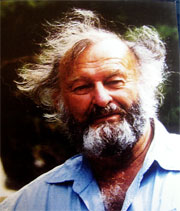War Poetry Contest 2006
Congratulations to the winners of our 2006 poetry contest on the theme of war!
Honorable Mention $75
- EP Allan, The Sacrifice
- Judson Blake, The Immolant Approaches the Pentagon
- Louis Giron, What Was Left Out, Perchance to Dream
- Linda LeGarde Grover, Casualty Days
- Paul Hamill, The Submarine Cakes
- Sean Joyce, Beyond History
- Robert Hill Long, Abu Golgotha, The Red and the Green
- Jude Nutter, Selling Honey on the Road to Sarajevo, Love and the Hangman in Croatia, Untitled
- Jeff Streeby, LeRoi ‘Ace’ Evans
- Viktor Tichy, Hand, Baret, and Bayonet in my Mother’s Chest and Wild Mushrooms
Finalists
- Christopher Buehlman, Rapture (October 2001)
- Beth Ferris, Republic of Glass, Endless Knot, By the River
- Joan Hutcheson, The Language of War
- Heinz Kohler, Thunder in the East
- Tim Leach, Making Friends Where Tapioca Once Grew
- Christopher Leland, Strip Poker, Extreme Rendition
- John McBride, Night Greyhound
- Lynn Shoemaker, 9-11 Nampit
- Paula V. Smith, The Third Line
- Dennis Arlo Voorhees, Peace for Allen Ginsberg
- Larry Wells, After Our Own Hearts, East Wind, Rain
- Colleen Williams, War, Trojan Horse
Thanks to everyone who entered our fifth annual War Poetry Contest. This year we received 868 entries of 1-3 poems each. The range of responses to the topic was diverse as always, from myth and history to contemporary conflicts, and from celebration of the martial virtues to prophetic lament over innocent victims of violence. The extreme experience of war can show human character at its most purely courageous and sublime, and also at its most grotesque and absurd. I was looking for poems that could hold these contrasting aspects of warfare in a creative tension and do justice to the paradox instead of reaching for a neat solution.
In addition, I wanted stories that crackled with individuality, that took the poem out of the realm of generic war anecdotes and made me believe that I was meeting real people. If it was a well-known episode in myth or history, the poem had to make me feel that I'd never heard it quite that way before. The visceral, cinematic details of EP Allan's "The Sacrifice" are a good example of this technique. An interesting tale became a real winner when the author also connected it to a point of larger significance about human nature, as in Linda LeGarde Grover's reflections on class and femininity during the Vietnam War in "Casualty Days", or drew unusual connections between historical incidents, as in Lynn Shoemaker's "9-11 Nampit", Paula Smith's "The Third Line", or Colleen Williams's "Trojan Horse".
I was glad to find some high-quality formal poems this year, Paul Hamill's "The Submarine Cakes" (written in blank verse) and Jeff Streeby's "LeRoi 'Ace' Evans", and hope to see more in the future. The challenge is to sustain a disciplined form over the course of a poem that's also long enough to say something substantial. Streeby solves this problem by freestyling, like his virtuoso pilot character, with different patterns of rhyme and alliteration instead of a rigid structure.
The Winners
Ed Frankel's first-prize poems, "Instrumentum Vocale" and "Gladium Vocale", retell key episodes of Spartacus' ambitious but doomed slave revolt against the Roman Empire in the first century BC. The legend of Spartacus has long been a symbol of struggle against oppression. Frankel's taut, unsparing verses bring these characters to life amid a host of paradoxes. A "just war" that is still brutal and marred by treachery; a war that (as always) dehumanizes the combatants, even as it gives an exploited people a fleeting, glorious opportunity to claim their birthright as human beings and not "tools with a voice"; an honorable defeat that ultimately casts a longer shadow than any victory. The psychological realism of Frankel's characters brings out this story's universal aspects. His portrait of decadent late-Roman society, where sentimentality and refined pleasures coexist with a taste for murderously violent entertainment, holds a disturbing mirror up to our own culture.
Willam Pitt Root's "El Comandante Has Asked for a Song" is a jewel-like tragedy about the assassination of Chilean poet, singer and activist Victor Jara. In 1973, when the authoritarian General Pinochet toppled Salvador Allende's popularly elected socialist government in a US-backed coup, Jara was among thousands of prisoners tortured in the Chile Stadium by the new government's military forces. This poem shows him turning his captors' taunts into a moment of beauty and courage that brute force could not overcome. The burning outrage of Root's lines coexists with an uncanny, slow-motion lushness and even a kind of peace. Like the Spartacus poems, "El Comandante" questions whether power is the same as true strength.
Carrie Preston's poems "I Also Married the War", "The camis come out", and "War Paperwork" complete the picture with a military wife's love-hate relationship with the Marines. The narrator's voice is trustworthy, poignant and relentlessly honest about the compromises she must make between loyalty to her conscience and support of her husband. She accepts that they have antagonistic yet complementary and equally necessary roles to play—his to submerge himself in collective defense of the nation, hers to insist on the preciousness of the individual and to keep alive the compassion that crosses national borders. Preston showed us an earlier stage of these characters' relationship in her 2003 Honorable Mention poem, "You Haven't Killed Anyone". Taken together, these poems make an even more fascinating picture.
Other repeat winners this year are Honorable Mentions Robert Hill Long and Jude Nutter, who won first prize in our 2004 and 2005 contests, respectively, and Viktor Tichy, one of our 2004 Honorable Mentions. Several more familiar names appear among the finalists. Since the contest is judged completely anonymously, we aren't sure what this means, except that we've discovered some consistently talented writers.
Thanks again to all of you who submitted such compelling reflections on war and peace. We began this contest five years ago to encourage original thinking, informed by history and literature, about the conflicts that continue to afflict our world. If we have succeeded at all, it's due to the talent and wisdom of our contestants. I look forward to reading more of your fine work next year.
Contest Judge

Jendi Reiter
Jendi Reiter is vice president of Winning Writers, editor of The Best Free Literary Contests, and oversees the Winning Writers literary contests. Jendi is the author of the novel Origin Story (Saddle Road Press, 2024), the short story collection An Incomplete List of My Wishes (Sunshot Press, 2018), the novel Two Natures (Saddle Road Press, 2016), the poetry collections Made Man (Little Red Tree Publishing, 2022), Bullies in Love (Little Red Tree Publishing, 2015), and A Talent for Sadness (Turning Point Books, 2003), and the award-winning poetry chapbooks Swallow (Amsterdam Press, 2009) and Barbie at 50 (Cervena Barva Press, 2010). Awards include a Massachusetts Cultural Council Artists' Grant for Poetry, the 2016 New Letters Prize for Fiction, the 2016 Rainbow Award for Best Gay Contemporary Fiction, the 2015 Wag's Revue Poetry Prize, the 2013 Little Red Tree International Poetry Prize, the 2012 Betsy Colquitt Award for Poetry from Descant magazine, the 2011 James Knudsen Editor's Prize in Fiction from Bayou Magazine, the 2011 OSA Enizagam Award for Fiction, the 2010 Anderbo Poetry Prize, and second prize in the 2010 Iowa Review Awards for Fiction. Jendi's work has appeared in Poetry, The New Criterion, Mudfish, Passages North, Cutthroat, Best American Poetry 1990, and many other publications. See their interviews in RoundPier and Lammergeier.
Photo by Ezra Autumn Wilde










